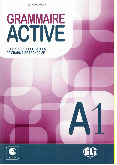




Preview text:
VSTEP THẦẦY C NG – CÔ TH ƯƠ Y Ủ SÔỐ ĐI N THO Ệ I: 0981 63 1336 Ạ
SPEAKING VSTEP B1, B2, C1 CODE 03
Part 1: Social interaction
1) Do you like music? If yes, what kind of music do you like best? Why? If no, why not?
- I am interested in music because of its rhythm and lyrics. I feel relaxed when
listening to music. Music is a good way to nurture my soul and emotions.
2) What is the most popular kind of music in your country?
- Pop music is very popular in my country. It is said that it is the music of the young
which makes people love life more. It gives people more energy to live and work.
- Traditional music is the most popular in my country. It helps people to relax,
nurture our love for the country. Listening to traditional music, people feel proud of
the history, culture and customs of our country.
3) How is music good or not good for people?
- In my opinion, music is good for people. When you listen to music, you can feel
your happiness or sadness in the rhythm and lyrics. Moreover, music makes you
relaxed and comfortable after a hard working day. A joyful song can cheer you up
and change your mood. It is the reason why when you are happy or in troubles,
music is always your good friend.
4) Did you learn English at secondary school?
- No, I didn’t learn English at school. I studied Russian/ French. It was interesting
but difficult. I started learning English when I was at high school.
- Yes, I did. English was a compulsory subject in my school. I knew that English was
necessary for my study and my future job
5) What do you think about how English is taught at school now?
- Now English is taught in a traditional way at school. It means that students learn
grammar, vocabulary and how to make correct sentences but not how to
communicate in real life situations. English is considered as a compulsory subject
rather than an interest. As a result, most students are reluctant to learn English.
6) In what ways has children’s English much improved nowadays? 1 VSTEP THẦẦY C NG – CÔ TH ƯƠ Y Ủ SÔỐ ĐI N THO Ệ I: 0981 63 1336 Ạ
- These days children learn English from very young age. They start learning English
at Kindergarten and can access a lot of resources in English. They can listen to
English songs, watch movies in English, and participate in English speaking clubs to
improve their language proficiency. Some parents send their children abroad, so
they have chances to live and study in an English speaking environment.
Part 2: Solution discussion
An optional subject will be added to the curriculum for secondary students in
your city. Three options are suggested: - photography - swimming - dancing a) If
I have the right to choose an optional subject to add to the curriculum for
secondary students in my city, a swimming course is my first choice. In reality,
Vietnamese students have a sedentary lifestyle and they seldom do physical
activities to make them strong. They study at school during the daytime and go to
extra classes in the evening. Whenever they have free time, they play games, see
films or listen to music. Additionally, according to some statistics, the main reason
for the high rate of drowning deaths in Vietnam is that children do not have
swimming skills. Therefore, a swimming course is necessary for them in terms of health and safety. b) In
my opinion a photography class is interesting and necessary. Vietnamese
students study most of their time: they go to school during the daytime and go to
extra classes in the evening. Therefore, a photography class can make students
relax after hard working hours. It also helps them to enjoy the beauty of life. With a
camera, they can keep their most memorable moments in life with their family and friends for the whole life. c) In my opinion
a dancing class is interesting and necessary. Vietnamese students
study most of their time: they go to school during the daytime and go to extra
classes in the evening. Therefore, a dancing class can make students relax after
hard working hours. It also helps them to make friends. Dancing practice help 2 VSTEP THẦẦY C NG – CÔ TH ƯƠ Y Ủ SÔỐ ĐI N THO Ệ I: 0981 63 1336 Ạ
students improve their physical and mental health, be more energetic and active in real life.
Part 3: Topic development
Topic: It is good to learn about a culture when you learn a language.
- Language: the best means of culture - Better communication - Culture shocks
- Your own ideas
a) Language - the best means of culture: A language is a system of grammar,
meaning, sounds and written symbols which are used by the people of a particular
country or region for talking or writing; whereas, cultures refer to social patterns of
behaviors, beliefs, attitudes and values. We know more about a nation’s culture via
traditional lullabies, legends of folklore which are expressed by language. Language
is the medium to convey cultural values from generations to generations. Without a
language (in oral or written forms), people cannot express their ideas; therefore,
cannot communicate and pass their cultural beliefs, attitudes and values to descendant generations.
b) Better communication: As said, language is a system of grammar, meaning,
sounds, and written symbols that are standardized enough to be used by people to
transmit information and ideas from one to one another; whereas, communication
is any form by which people exchange information and ideas. They can use
language, but they can also use gestures, facial expressions, signals, or any other
medium to express that information. However gestures, facial expressions and
signals are not informative and expressive enough to convey the information and
ideas successfully. In that case, language is the best way to pass on and discuss ideas or information.
c) Culture shocks: Culture shock is an experience a person may have when one
moves to a cultural environment which is different from his/ her own; it is also the
personal disorientation, anxiety a person may feel in unfamiliar surroundings. One
of the most common causes of culture shocks involves individuals in a strange 3 VSTEP THẦẦY C NG – CÔ TH ƯƠ Y Ủ SÔỐ ĐI N THO Ệ I: 0981 63 1336 Ạ
environment, even in a foreign language course. Values, behaviours, and social
customs we routinely take for granted may no longer serve us in our new
environment. By adapting to a foreign culture, you can overcome your culture
shock and develop relationships with those around you.
d) Your own ideas: Learning a new language is challenging for almost everyone.
Sometimes you may feel depressed when coping with lexicology, phonology and
grammar. You may get shocks because of differences between different cultures in
eating, shopping, travelling habits etc. However, it gives you new knowledge and
experience of new cultures and peoples. Additionally, you may get a better job,
have a higher salary or promote in your career if you can speak a foreign language.
Follow up questions:
1) Do you think it’s good to understand other people’s cultures? Why?
- In my opinion, it’s great to understand other’s people’s cultures. If you know
other’s culture, you may not get cultural shocks when you communicate or have a
transaction with them and you can avoid embarrassing situations. Furthermore,
understandings of different cultures enrich your knowledge and experience, which
make you more active and dynamic in real life.
2) What would you introduce first to a foreigner about the Vietnamese culture?
- Vietnamese people have different traditional songs, dances, festivals as well as
historical monuments throughout the country to introduce to foreign friends.
However, if I had a chance, I would introduce “quan ho Bac Ninh”- a traditional type
of music originated in Bac Ninh province - to a foreigner who first visit Vietnam. It is
intangible cultural heritage which was recognized by UNESCO.
3) What would you like to learn about English-speaking cultures?
- There are a lot of thing I would like to know about English-speaking cultures, such
as peoples, their cultural values and heritage. Those understandings enrich my
knowledge and experience, which make me more knowledgeable, active and help
me avoid embarrassing situations in real life. 4 VSTEP THẦẦY C NG – CÔ TH ƯƠ Y Ủ SÔỐ ĐI N THO Ệ I: 0981 63 1336 Ạ 5



